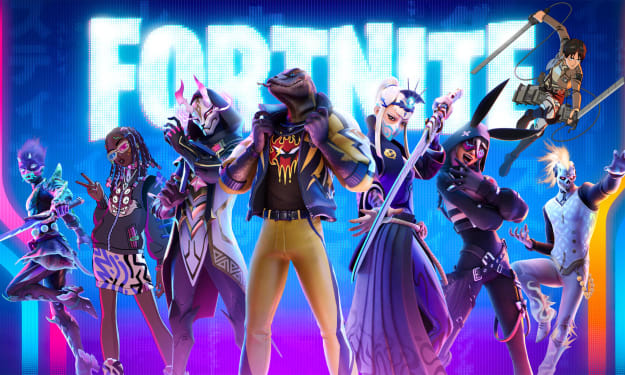How ‘Chainsaw Man’ Explores Morality Through Dark Fantasy
Is there morality in Chainsaw Man’s themes?

Chainsaw Man, a manga series created by Tatsuki Fujimoto, has captivated readers with its gripping narrative, complex characters, action-packed scenes, and of course, its thought-provoking themes. However, one of the most intriguing aspects of Chainsaw Man is its exploration of different types of morality.
Considering how dark and twisted Chainsaw Man’s setting is, it actually introduces a number of different moral dilemmas and I am all for it! So in this article, we will dive into the moral landscape portrayed in some of Chainsaw Man themes, drawing upon academic theories of morality in order to analyze the diverse ethical dilemmas and presented in the series.
*Spoilers for the Chainsaw Man anime/manga will be discussed. You have been warned.
The Morality Spectrum

While one of the main Chainsaw Man themes centers around the battle between good and evil, it additionally showcases a spectrum of morality in its cast of characters and how they deal with this ongoing battle. Considering how the series is set in a world where death can happen at a moments notice, it introduces a variety of moral dilemmas where absolutes are considered to be the most effective. So with that in mind, lets explore some of the most prominent moral theories shown in Chainsaw Man!
Moral Relativism
Moral relativism is a philosophical theory that explains how moral judgments and ethical principles is subjective and not absolute. Instead it claims that morality is dependent on cultural, societal, or individual context. This concept is exemplified in Chainsaw Man, where characters like Denji and Power exhibit varying moral compasses that is shaped by their unique backgrounds and experiences.

In the case of Denji, he is driven by his desire for a normal life and often makes choices that prioritize personal survival and self-fulfillment over traditional notions of right and wrong. Power, on the other hand, embraces chaos and exhibits a more nihilistic approach to morality, but still showcases sympathy and cooperation to those closest to her when it is beneficial for everyone.

While some of their judgements can come across as childish, immature, and selfish, they believe that all of their accomplishments as Devil Hunters is morally correct and just. Whether if its Power sacrificing Denji to save a cat or Denji kicking the nuts of a criminal multiple times for revenge, their actions are often guided by personal needs rather than a universal moral code, resulting in decisions that may be considered morally ambiguous to many, but in the eyes of Moral Relativism it is completely justified.
Moral Absolutism
In contrast to Moral Relativism, Moral Absolutism is a philosophical theory that explains how there are objective and universal moral principles that apply to all people, regardless of cultural, societal, or individual differences. This concept is explored in one of Chainsaw Mans themes through the lens of Makima, who embody this perspective, acting as a moral authority driven by a strict adherence to a particular ideology.

Makima’s actions are often justified by all of her coworkers, because of the necessary lengths she goes in order to serve a perceived greater good. Despite how her methods entail sacrificing individual freedoms or causing an excessive amount of harm, she believes that the work she is doing is objectively right. This clash between moral relativism and absolutism further adds to the moral complexity of the series.
Utilitarianism
In relation to Moral Absolutism, another major Chainsaw Man theme that is often brought up is the notion of sacrificing a few for the benefit of the many, and the series explores this concept through its use of Classic and Negative Utilitarianism.

Classic Utilitarianism is a moral theory that advocates actions that maximize the overall happiness for the greatest number of people. Meanwhile, Negative Utilitarianism is a theory that prioritizes minimizing the overall suffering and negative experiences rather than maximizing overall happiness. This contrast between the two is explored through characters like Aki and Himeno, who often faces the utilitarian dilemma of weighing individual lives against the preservation of society and their colleagues.
With Aki, we see that he is driven by a sense of duty and often faces difficult choices where the lives of a few may need to be sacrificed to prevent greater harm. While on the other hand, Himeno has an extremely pessimistic worldview as a result of having multiple partners die during their work, so instead of saving as many as possible, she approaches every problem as an attempt to minimize the damage as much as she can.

Their differences in approaches is seen on multiple occasions, however, the most the prominent example is when Aki and Himeno are figuring out how to fight against the Eternity Devil. In this case, Aki was willing to sacrifice years of his life to possibly kill the devil, but Himeno, on the other hand, was willing to sacrifice Denji in order to properly escape the trap they wandered into.
This exploration on utilitarian dilemmas really prompts both readers and viewers to question the consequences of using a utilitarian approach as it often brings a whole range of moral complexities.
Consequentialism
Chainsaw Man also raises questions about the unintended consequences of consequentialist actions. Consequentialism is a moral theory that states how the morality of an action is based on the outcome of a situation. The theory also suggests that no matter what kind of intentions you act with, the overall outcome will determine whether or not it was ethical.
In relation to one of Chainsaw Man’s themes of survival, consequentialism can tell us about the characters struggle as they strive to achieve their goals but contemplate about the innocent lives that are lost in the process. It challenges readers to consider the ethical implications of actions that result in collateral damage, no matter how pure the intentions may have been to begin with.

We this throughout the series with Denji, Power, and Aki who all have contemplated about the morality of their actions and the inherent cost that came with it. In addition to their grapple with their moral choices, the series challenges traditional notions of moral absolutes so theories such as Moral Absolutism and Utilitarianism are not entirely perfect no matter what kind of setting it is practiced in.
Caught Up About The Ethics Of ‘Chainsaw Man’?
Chainsaw Man’s exploration of morality through its multidimensional characters and complex ethical dilemmas makes it a compelling work that provokes deep introspection. By drawing upon theories of morality and ethics and tying it to some of the larger Chainsaw Man themes, the series invites readers to question their own moral compasses and confront the intricate nature of ethics in a morally ambiguous world.

Through its dark fantasy lens, Chainsaw Man serves as a powerful medium for exploring the complexities of morality, challenging conventional notions, and prompting readers to critically examine the shades of gray that exist within ethical decision-making.
If you liked what you read be sure to follow for more related content!
About the Creator
Jay Kobayashi
A starving writer from LA who aspires to be plagiarized one day. I like to write about academic pieces that identifies philosophy and psychology in pop culture, and sometimes random fun pieces that interests me or the algorithm!






Comments
There are no comments for this story
Be the first to respond and start the conversation.